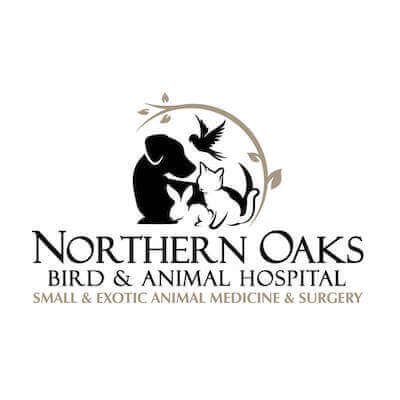Can birds make dogs sick?
In a healthy dog, the answer is no. The answer is no unless there is an immunocompromised system, either in a human or a dog. Birds are like any other creature, healthy and coexisting with us.
Dr. Becka Byrd
Northern Oaks Bird & Animal Hospital and Heritage Oaks Animal Hospital
Are there bird diseases that humans can catch?
Again, if you have an immunocompromised system, that might be a concern, but if you're healthy and your bird is healthy, then you should be able to coexist peacefully. However, we do recommend washing your hands between handling your bird and handling food.
What are bird flu symptoms?
Bird flu symptoms would be the same as any flu symptoms.
Should birds get regular wellness checkups?
Yes, absolutely. We would also recommend annual lab work. Birds are what's called a silent carrier, and they have what's called a masking phenomenon, meaning that in the wild, they get eaten. They're at the bottom of the food chain, so they try to protect themselves from looking ill at all costs. When a bird looks sick, they're actually very sick by that time. So catching the disease early is extremely important, and blood work is one of the few ways we can do that. We, as veterinarians, can see some subtle markers during an examination that an owner might not pick up on.
Do birds need vaccinations or shots?
Not often, no. As long as they're pet birds, they're not in a breeding flock, and they're within your home, then we examine them and ensure they're healthy, and then we will provide advice on how to care for them.
How soon should you bring your bird in to see a veterinarian if you suspect something is wrong?
As soon as possible. Remember the masking phenomenon we talked about? Your bird's probably been sick a little longer than they're letting on, and they've just been hiding it until they can't anymore.
Why is it important to avoid self-diagnosing illness in your bird?
Because there's a lot of misadvice on the internet, and it is very difficult to tell if a bird is sick until they're so sick that it may be too late. We really want to jump on that as soon as possible. Birds don't just get a cold and get over it in a day or two. If a bird's on the bottom of a cage or fluffed up, sleeping more than it should be, vomiting, or sneezing, it's very important to get in immediately and get that treated.
What are some signs and symptoms that a bird is sick?
It's going to be the things that we've talked about. Excessive itching, scratching, a build-up of the cere on a bird, which is the area right above the nose, build-up of keratin on the nails, A beak that grows excessively long, longer than it should, fluffed up, sleeping more, sneezing, coughing, drainage from the nose, eyes that won't open, vomiting, staying on the bottom of the cage, and less active. All of those are signs that need to be addressed and should not be ignored in a bird. These are delicate little creatures with the potential for a very long life, but they do require adamant care and a keen eye.
If you still have other questions and you'd like to reach out to us, you can call us directly at (210) 496-1315, or you can email us at [email protected]. But please do reach out, and we'll get back to you as fast as we can. Don't forget to follow us on social media https://www.facebook.com/northernoaksvet/ #
Bird Care - FAQs 1
Dr. Becka Byrd
Northern Oaks Bird & Animal Hospital
If you've considered getting a bird or having a bird as a pet, or if you already have one, what should you know about nutrition?
There's a lot of information on the internet and a lot of misinformation on the internet. Some of it's great, but it's hard to decide what to follow and what not to. Some breed sites will tell you that this specific bird or this specific breed of bird should have this food and this type of food is the only thing they can eat. Some will tell you that this one thrives on seed, this one thrives on fruit only. The reality is that most birds do not eat seed anymore. Seed was something that we fed them many years ago when we really didn't know what they ate, but we knew they would eat seed. But feeding seed is like feeding your birds Snickers bars every day. They get fat, they enjoy it, but it's junk food. The hospital has seen consistent liver disease, liver failure, high cholesterol, and feather dysplasia in birds that eat seeds. So what do birds eat? Well, most birds these days can eat a commercial quality pelleted diet. There are several good brands. These diets are scientifically based to give complete nutrition in every single bite so that your bird cannot pick out just what they want and leave the healthy stuff. And birds are pretty smart, so converting them can take some time. We have some good methods for that on our website if you'd like to check them out. But mixing your seeds and mixing your pellet half and half isn't usually going to work. Birds will pick out the seed, leave the pellets, because who wouldn't want to pick the Snickers bars over the Brussels sprouts? So trying to be smarter than your bird is important, and we've got to be the parents in this situation. But we've seen dramatic improvements in our birds that are converted to pellets. And so we're going to ask you to really work on that and get your babies converted over. It's important. And the brands that we typically try to convert to are going to be Zupreme, Rowdy Bush, Harrison's, and Lefebvre's. Those are excellent brands. Most birds thrive on those.
What about adding vitamins to the bird's diet?
Another good thing you can do is add a vitamin to the water. We like VV13 and some of the Lefebvre vitamins. Powdered vitamins on the seed don't work very well because they fall off the seed, and birds shell the seed when they eat it. So converting from your seeds is really important. And remember, if they eat supplementary foods, the food should be just that, a supplement, not in place of the pelleted diet. We want to make sure that it's completely balanced, and then a few veggies on top of that. And possibly fruit a few times a week, but not fruit in place of veggies, because diabetes is also a risk for these guys.
If you have any other questions, please give us a call at (210) 496-1315. You can also email us at [email protected] and we will get back to you as soon as we are able. Don't forget to follow us on social media: Facebook and Instagram



